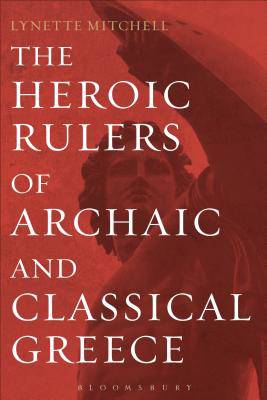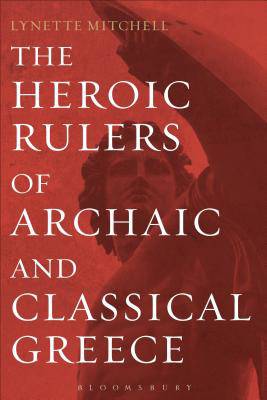
- Afhalen na 1 uur in een winkel met voorraad
- Gratis thuislevering in België vanaf € 30
- Ruim aanbod met 7 miljoen producten
- Afhalen na 1 uur in een winkel met voorraad
- Gratis thuislevering in België vanaf € 30
- Ruim aanbod met 7 miljoen producten
Omschrijving
With an in-depth exploration of rule by a single man and how this was seen as heroic activity, the title challenges orthodox views of ruling in the ancient world and breaks down traditional ideas about the relationship between so-called hereditary rule and tyranny. It looks at how a common heroic ideology among rulers was based upon excellence, or arete, and also surveys dynastic ruling, where rule was in some sense shared within the family or clan. Heroic Rulers examines reasons why both personal and clan-based rule was particularly unstable and its core tension with the competitive nature of Greek society, so that the question of who had the most arete was an issue of debate both from within the ruling family and from other heroic aspirants.
Probing into ancient perspectives on the legitimacy and legality of rule, the title also explores the relationship between ruling and law. Law, personified as 'king' (nomos basileus), came to be seen as the ultimate source of sovereignty especially as expressed through the constitutional machinery of the city, and became an important balance and constraint for personal rule. Finally, Heroic Rulers demonstrates that monarchy, which is generally thought to have disappeared before the end of the archaic period, remained a valid political option from the Early Iron Age through to the Hellenistic period.Specificaties
Betrokkenen
- Auteur(s):
- Uitgeverij:
Inhoud
- Aantal bladzijden:
- 224
- Taal:
- Engels
Eigenschappen
- Productcode (EAN):
- 9781472510679
- Verschijningsdatum:
- 3/10/2013
- Uitvoering:
- Paperback
- Formaat:
- Trade paperback (VS)
- Afmetingen:
- 155 mm x 231 mm
- Gewicht:
- 340 g

Alleen bij Standaard Boekhandel
Beoordelingen
We publiceren alleen reviews die voldoen aan de voorwaarden voor reviews. Bekijk onze voorwaarden voor reviews.







